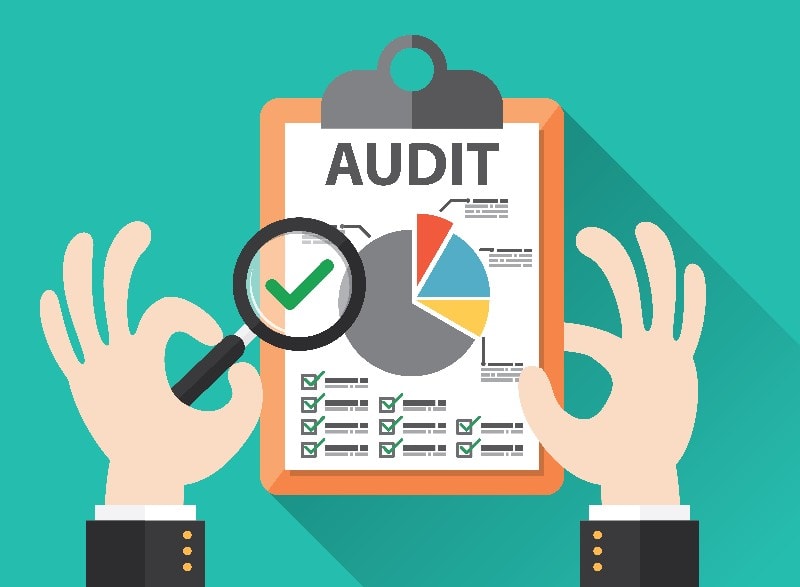Table of Contents
Definition
Quality audit is a process of examination and verification of procedures, records, and activities of a quality system that is carried out by an audit team or an internal or external quality auditor. Quality audit is considered an integral part of the quality management system and is considered as a critical component in the ISO quality system standard ISO 9001
Meaning
Quality audit is described as a documented examination that is independently conducted at periodic intervals. Any failure in proper implementation can be published publicly and result in the dismissal of quality certification.
Quality audit is a standard monitoring process that ensures proper assessment of a system, adequate implementation of processes, elimination of problem areas, and boosting the efficiency of the methods.
Advantages
The advantages of quality audits are as follows-
- The quality audit evaluates the effectiveness of a system and identifies the key areas that need improvements. It serves as an essential tool to increase organizational functionality
- Sharing feedback of the quality audit with other departments improves the overall processes of the whole organisation
- The quality audit measures the different aspects of the quality management system, track those said measurements, convert analysis to opportunities and add viable value to the core business
- Increases the safety of workers by keeping an eye on the working conditions. It reports any deterioration in the current conditions and monitors risks involved in working in those conditions.
- Serves as a learning tool that learns about the various aspect s of the company so that it can lead to future growth
- Gathers input from the employees and uses these observations to gain valuable insight into the company
- Provides the summary of the investigation and evaluation the auditor has conducted so that the key considerations can improve the overall performance of the company
- Helps the organisation to align policies and real-world procedures. It nudges the company to follow all the rules diligently the right way so that it can maintain all the expected standards
- Quality audit is considered an important activity that can measure gaps in the organizational standards and processes.
- Quality audit is an effective technique to identify the various opportunities that can eliminate waste and help optimization in an organisation.
- The quality audit has set parameters that include several checkpoints. It can easily track issues before they occur
- Periodic quality audits keep a check to know whether the preventive actions have been practical or not
Types of quality audit
The various types of quality audits are as follows-
- Internal quality system audit – As the name suggests, an internal quality system audit is a tool to measure quality. It evaluates EQMS or Electronic Quality Management System in an organization to ensure maximum outcomes and highest efficiency levels. The software manual in this quality audit type is audited so that all the key employees can access the document and the work instructions are audited so that quality processes can meet set targets
- Production Team Audit – In a production team audit, the quality auditors have to evaluate past activity for escapes, evidence of training and changes to processes. An organization carries out a production team audit when it needs re-qualifications related to skill management. It is also conducted when a Certified Operator program or Operator Acceptance programs are in place.
- Supplier Audit – This type of quality audit helps an organisation to join forces with its suppliers directly in real-time. When you conduct a quality audit in the supply chain, it becomes easier to establish accountability if there is a chance of poor performance. The company can control the quality of the suppliers and even the sub-tier suppliers by implementing supplier audits in its system. There is a higher level of transparency because of quality audit, and this encourages the identification of the areas that needs improvement via KPIs or Key Performance Indicators. The supplier audit can easily view purchase order activities like receipts to take the necessary corrective actions.
- Safety Audits- Safety policies in an organization are a necessity because it can prevent accidents from happening. If someone is injured, it can mean loss of life or any other serious issue that can be damaging to the company. A successful safety policy improves the overall well-being of an employee. Safety audits are aimed at protecting the safety of the employees in an organization by viewing the plans and designs. It also examines organizational procedures and reviews equipment operation to ensure routine safety in the company.
- Environmental Audit – The environmental audit helps to create a safe environment by identifying workplace risks. It also ensures that all the employees are using personal protective equipment and taking the necessary measures in the workplace
- Facilities Audit – A facilities audit reviews building systems, technology, and manufacturing equipment to ensure safety. It also helps to identify the improvements that can encourage quality outcomes
- Risk Assessment Audit – As the name suggests risk assessment audit helps to create and implement an effective strategy for risk mitigation. It prioritizes preventive measures and makes sure that they are implemented as per the need of the hour
- Regulatory Audit – This type of audits helps to verify compliance with set standards and regulations. It reviews the data collection method and quality practices to identify the areas of non-conformance.
- Design Control Audit – The design control audit helps to review the design plan, output, and input for proper acceptance. It ensures the recognition of formalized processes in the workplace so that it can meet acceptable safety and quality standards and perform risk analysis.
- Method Validation Audit – The method validation audit ensures standardization of analytical test methods that are used during the manufacturing process for accuracy and consistency in case of products
Did you know the significant impact quality audits have on organizational success?
According to the International Organization for Standardization (ISO), as of 2022, over 1.2 million organizations worldwide have obtained the ISO 9001 certification for quality management systems. This widespread adoption highlights the critical role that quality audits play in enhancing process efficiency and ensuring compliance with international standards. (Source: ISO Survey 2022)
Moreover, a study by the American Society for Quality (ASQ) found that companies implementing regular quality audits experienced a 15% reduction in operational costs due to decreased waste and improved productivity. This demonstrates how quality audits not only uphold standards but also contribute to a company’s bottom line. (Source: ASQ Quality Report 2021)
Liked this post? Check out the complete series on Operations Management

